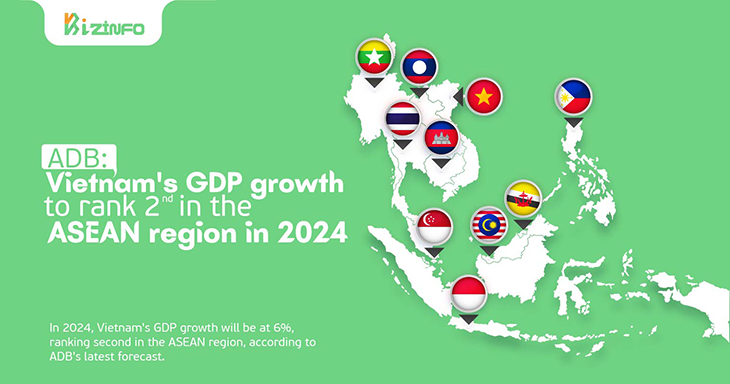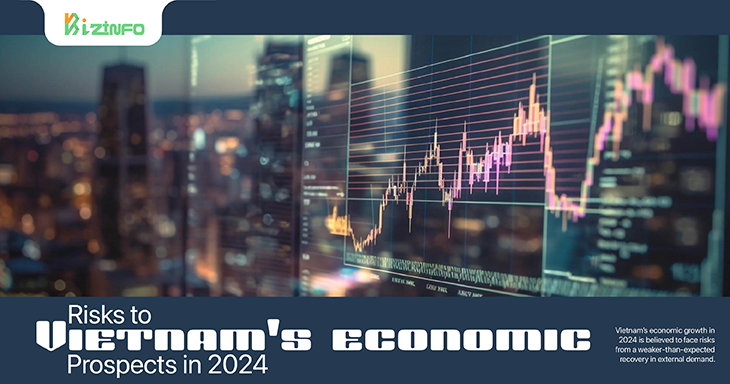Published Apr 2024
Continued warning of risks to economic growth
According to AMRO, the risks to Vietnam's economic outlook are predominantly negative.
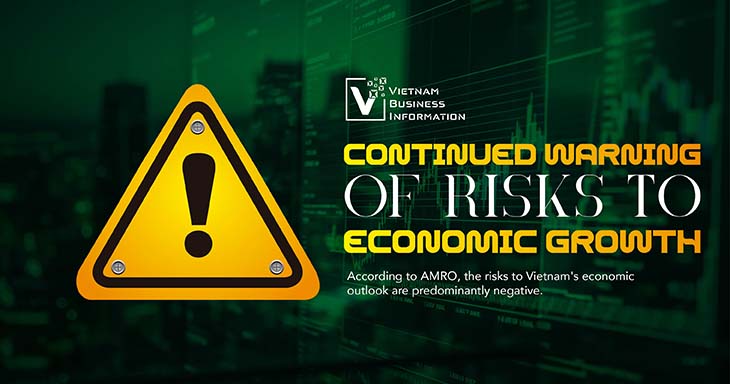
Numerous encircling risks
The ASEAN+3 Macroeconomic Research Office (AMRO), in its latest analysis of Vietnam, continues to sound the alarm about risks to Vietnam's growth prospects leaning towards the negative side.
The risks of recession primarily stem from economic downturns in the EU or the US, slower-than-expected economic recovery in China, and prolonged stagnation in the Vietnamese real estate market. These factors could exacerbate financial difficulties for real estate developers and increase pressure on other related sectors.
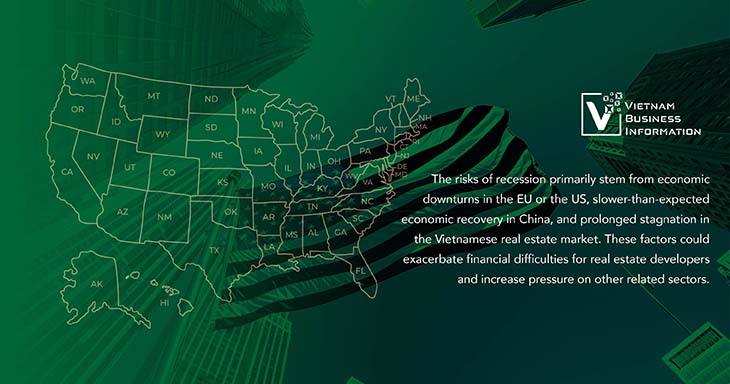
AMRO forecasts that Vietnam's economy will grow by 6% this year, significantly higher than the 5.1% rate last year due to improved external demand, domestic demand recovery, and strong FDI inflows.
However, alongside the external risks mentioned above, Vietnam also faces financial issues, mainly arising from deteriorating asset quality. The non-performing loan ratio, especially in retail businesses, SMEs, and real estate-related loans, has increased due to weak economic conditions and a sluggish housing market. Loan repayment deferrals may conceal weaker underlying credit quality.
In the longer term, Vietnam's growth potential faces various structural challenges, including slowing manufacturing sectors, labor skill shortages, and rapid population aging.
Moreover, Vietnam is one of the most vulnerable economies in Asia to climate change due to its concentration of economic activities and population along the long coastline, as well as rapid urbanization and industrialization processes.
What should Vietnam do?
Given the uncertain factors regarding growth prospects, Vietnam should implement combined policies to support growth while maintaining financial stability.
Specifically, fiscal policy should play a leading role in strengthening the economy, with supporting measures continuously adjusted to achieve higher efficiency and target more vulnerable groups.
Maintaining an appropriate monetary policy stance will reduce financial burdens on SMEs and heavily indebted households.
Macroprudential regulations, such as reducing concentration or loan-to-value ratios, should be applied to prevent risks arising from the real estate market and limit speculative demand.
Bank capital buffers and liquidity need to be strengthened in the context of increasing risks.
Furthermore, AMRO recommends Vietnam pursue simultaneous efforts to address structural challenges and promote comprehensive and sustainable development.
Medium-term fiscal policies should aim to improve tax management, expand the tax base, enhance expenditure efficiency, and strengthen social protection.
Improving the monetary policy framework will enhance the role of these policies in supporting the economy. The goal of credit growth should be gradually reduced over time when conditions allow and with an appropriate roadmap to pave the way for a more market-oriented policy framework.
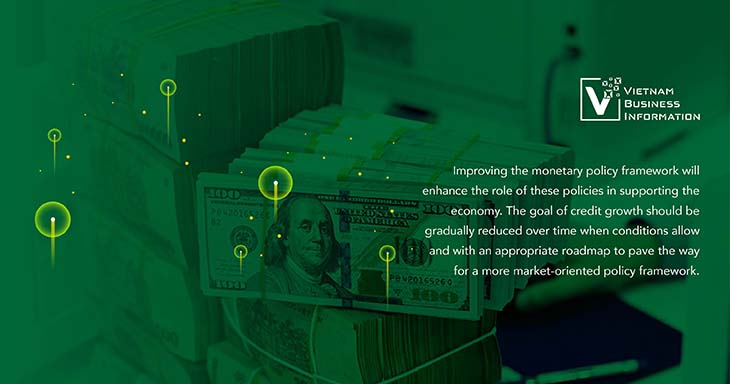
The organization also suggests Vietnam pursue legal reforms in the financial system by accelerating mergers and acquisitions between stronger and weaker banks, improving bank resolution frameworks, strengthening corporate governance regulations, consumer financial protection, and disclosure, as well as enhancing financial literacy.
Expanding credit guarantee programs can help boost SMEs' access to finance.
The financial difficulties in the housing market also highlight the importance of addressing legal bottlenecks and data gaps related to real estate and construction.
Regarding labor skill shortages, Vietnam needs to make more efforts and financial support to improve the availability and quality of education and vocational training programs.
To enhance the country's resilience to climate change, both mitigation and adaptation measures are needed to minimize risks associated with the transition to a low-carbon economy.
Source: AMRO, theleader
Compiled by VBI













